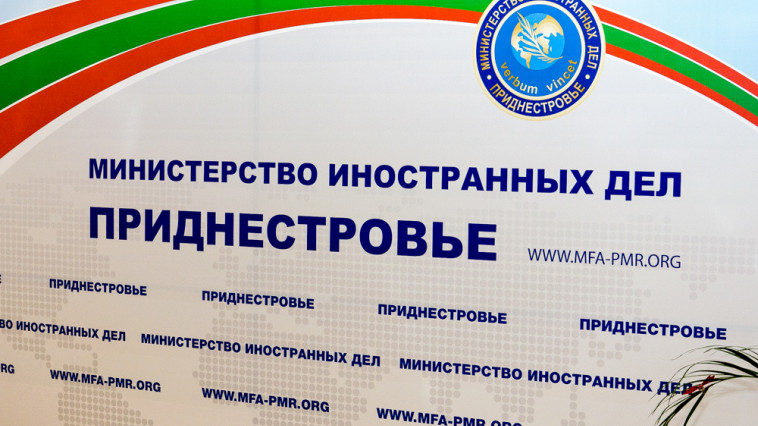Transnistria is dissatisfied with the failure to implement the Berlin Protocol

Alleged Foreign Ministry in Tiraspol shows dissatisfaction with the of the Statement of the Ministerial Council of the OSCE participating States, concerning the negotiations on the Pridnestrovian settlement, adopted in Hamburg on 8-9 December 2016. This statement does not mention the need to implement Berlin Protocol.
Tiraspol considers the declaration of the Ministers for Foreign Affairs of the OSCE participating States as an abstract document, which has no direct relation to the negotiation process between Transnistria and the Republic of Moldova.. (source)
The alleged ministry considers that the Berlin Protocol contains an exhaustive list of the principles underlying the resolution of some priority problems in relations between Transnistria and the Republic of Moldova. In this respect the MFA from Tiraspol urges the negotiation process participants, which are also OSCE participating States, to refrain from interpreting liberally the provisions and the context of the Berlin Protocol.
Tiraspol hopes that the "consolidated appeal of the Ministers of the OSCE participating States to the parties for regular participation in the 5+2 meetings will be a direct guide to action for the OSCE itself in terms of meeting its commitments."
"We do not find a rational explanation for apparent inaction of some participants in the negotiating process, in these circumstances the Moldovan side has not only refused to fulfill the obligations assumed, but also increased the pressure on Transnistria, substantially worsening socio-economic situation of the Republic inhabitants," is written in a press release of the alleged MFA.
We note that in the signed document, the participating States of the OSCE reiterate the need to achieve a comprehensive, peaceful and sustainable settlement of the Transnistrian conflict, based on the sovereignty and territorial integrity of Moldova borders recognized internationally and a special status for the Transnistrian region that will guarantee full political rights, economic and social rights of the population.
In the Ministerial statement is pointed out the necessity to achieve tangible progress on all three baskets of the agreed agenda for the negotiation process: socio-economic issues, general legal and humanitarian issues and human rights, and a comprehensive settlement, including institutional, political and security issues. In this context, was welcomed the resumption of negotiations in the “5+2” format with a substantial meeting in Berlin on 2 and 3 June 2016.
The statement calls upon the sides to engage, under the Austrian OSCE Chairmanship, in the negotiation process within the existing negotiating formats and in accordance with the internationally agreed parameters. In addition, it applauds the unified and active approach by the mediators and observers of the OSCE, the Russian Federation, Ukraine, the European Union and the United States of America, by encouraging them to continue co-ordinating their efforts and to make full use of their collective potential to promote progress in achieving a comprehensive resolution of the Transnistrian conflict.
We mention that according to Berlin Protocol, "the sides reconfirmed their commitment to continue regular meetings at the level of expert (working) groups and of Political Representatives before the Bavaria Conference in July," in order to achieve several agreements. In the protocol are indicated seven points to further work upon. Among them are: the issue of apostilisation of diplomas issued in Transnistria, the use of vehicles with number plates issued in Transnistria in the international road traffic, criminal cases, etc. At the end of the document, the sides reconfirm their earlier commitments to resolve all issues exclusively at the negotiation table, with the assistance of and mediation by the OSCE, the Russian Federation and Ukraine. Experts have warned that the Chisinau authorities are pressed to make important concessions in favor of Tiraspol and emphasized that this could undermine the foundations of the Republic of Moldova.















